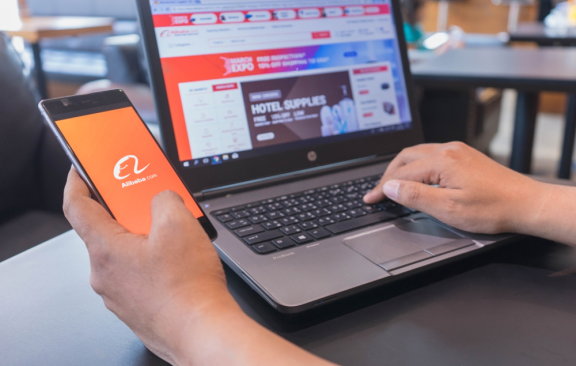Are you ready to become the next eBay success story? Wanting to leave your day job behind and move on to making serious cash from home? Join me as I reveal the five key steps to becoming an eBay PowerSeller.
What is a PowerSeller?
PowerSellers are quite simply eBay sellers who achieve a high level of sales and consistently receive positive feedback based on their exceptional customer service. Some PowerSellers really take online retail to the next level when they turn selling on eBay into a full blown business. These sellers work full time on their business for years and fully immerse themselves - and some even end up with millions of dollars in the bank!
Wondering how exactly you can become a PowerSeller? For starters, you need to have been an eBay member for at least 90 days and have a minimum of 100 feedback ratings. Of those 100 feedback ratings, at least 98% from the last 12 months must be positive. eBay's sales volume requirement demands a minimum of US$1,000 in sales and 2 items sold per month, or 100 items sold per month.
And what do you get for all your hard work? You get discounts on your Final Value Fees, greater customer support (phone and chat), discounted UPS rates and more. Best of all, you'll make more sales when buyers see your PowerSeller status on your listings which is represented by a shooting star icon next to your username and feedback.
Step 1: Acknowledge that becoming a PowerSeller and maintaining PowerSeller status is not easy.
It's also not fast, or pain-free. That's right; you are going to have to work hard to make some serious money... If you are still reading this blog now, well done! It means that unlike everyone who were turned off from reading the words "have to work hard", and closed their browser, you might just have what it takes to become a PowerSeller! That means you probably won't be shocked to know that some of the best PowerSellers worked 15 hour days, 6 days a week for a year to get where they are. Still with me and not afraid of a bit of hard work? Keep reading!
Step 2: Carve out a niche
I've said it before, and I'll say it again; you are much better off if you appeal to a smaller niche market, rather than trying to appeal to everyone. Remember the old saying "from small things, big things grow"? This is exactly how many eBay PowerSellers make it - by starting out small and selling one product, then expanding as they go by growing their product range.
We have talked about niches a lot over the past couple of months, but if you haven't quite caught on, a niche is a certain segment of the population who you intend to concentrate selling your product to. That means staying away from things like iPods and laptops, and instead, zooming in on more specific products. You'll often find the best niches when you put two or more categories together such as left-handed can openers (rather than just can openers), alcohol-free sunscreen or in-ear headphones for small ears.
Step 3: Create a business plan
Want to know the biggest difference between a PowerSeller and a casual ‘just-here-to-make-some-quick-cash' seller? PowerSellers plan to make it big. PowerSellers aren't often made by chance; they plan their success right from the very beginning. And you need to do the same.
First and foremost, a business plan will help you to define exactly what you want to achieve and how and when you will achieve it. Writing a business plan out will also help you to foresee any potential problems you might face further down the track. For some, a business plan will be essential when it comes time to approach banks or investors. Without a professional plan, these guys won't take you or your business seriously.
Here's a quick list of what you should include in your business plan:
- A mission statement. This will state the purpose of the business, the problem it will solve or the audience it will cater to, and show how your business is different from others like it.
- A description of your business. This should include the legal structure of the business (Limited Liability Company, corporation, or partnership - find out more about these here), a description of the items you sell, where they come from, what they are made of and how you source them.
- Your goals. Write down what you want to achieve both short and long term with your business. It's OK to talk about money here, but it might be better to say how many items you want to sell, rather than the focus being 100% on the money you will make. This gives potential investors a good impression as it shows them you are more about reaching out to customers, rather than simply making money.
- Outline your competition. This could be other successful eBay members who are selling the same or similar items as you. Getting familiar with your competitors is essential to your business, especially in the early planning stages. For example, you might find that your competitors have a great product, but have had a few negative feedbacks placed because the delivery time was slow, which would lead you to making fast shipping your point of difference.
- A run-down on your target audience. This is where you list who your customers will be. Investors will want to know basic information such as age group, sex and possibly race. Include what your audience will be looking for and why they need your product.
- A financial analysis. Here you need to itemise all overhead costs associated with your business including the cost of buying and shipping your items, importing and customs fees (if you are buying from overseas), eBay listing fees, rent on a storage unit and any costs associated with staff you might employ.
- Finally, talk about how you want to market your business. Will you have a blog, or maybe a website or a flyer drop? Also discuss business branding and the image you wish to portray to potential buyers.
Step 4: Maintain a steady supply of merchandise
One of the main practises that sets a PowerSeller apart from others is that they deal in huge bulk. A PowerSeller will always have their items in stock and ready. That means ready to list and ready to ship. PowerSellers build strong, mutually-beneficial relationships with suppliers. Buying in large bulk is always the preferable option as it means you will get the best price possible, but before you go ordering 1500 units of anything, you have to do some thorough research. All PowerSellers know that product and market research is paramount to the success of their business and spend more time on this than anything else.
Step 5: Always put your customers first
When it comes to selling in the big bad battlefield of eBay, make sure you always put your customers first. Rather than counting profits, PowerSellers know the importance of making buyers their number 1 priority. After all, if there were no customers, there would be no profits! To really show your customers you care, always respond to questions promptly and ship items as soon as you can!
Another sure-fire recipe for customer service success is offering free shipping on all items. This is common practise among PowerSellers and not only will it keep your customers happy and increase your number of sales, it will also help to boost the final price on bid auctions. How? Free shipping is favored by eBay search engines so your listings will rank higher, meaning you will get more visits, and therefore more bids!
When it comes to troubled customers, always keep your cool and remain professional. Communicate with them via email so that if they give you negative feedback unfairly, you can appeal it and have it removed. This is important for maintaining your minimum requirements to be a PowerSeller.
So there you have it, our five-steps to PowerSeller status revealed. Think you are up to becoming a PowerSeller yourself? There are no limits to what can be achieved by those who are ready to get stuck in and apply themselves 100% to making it on eBay.
If you are hungry for more information on Powersellers, or some inspiring stories to get you motivated, a quick Google search will give you a few options, or visit http://www.powersellersunite.com to tap into the world of eBay PowerSellers!












4 Comments